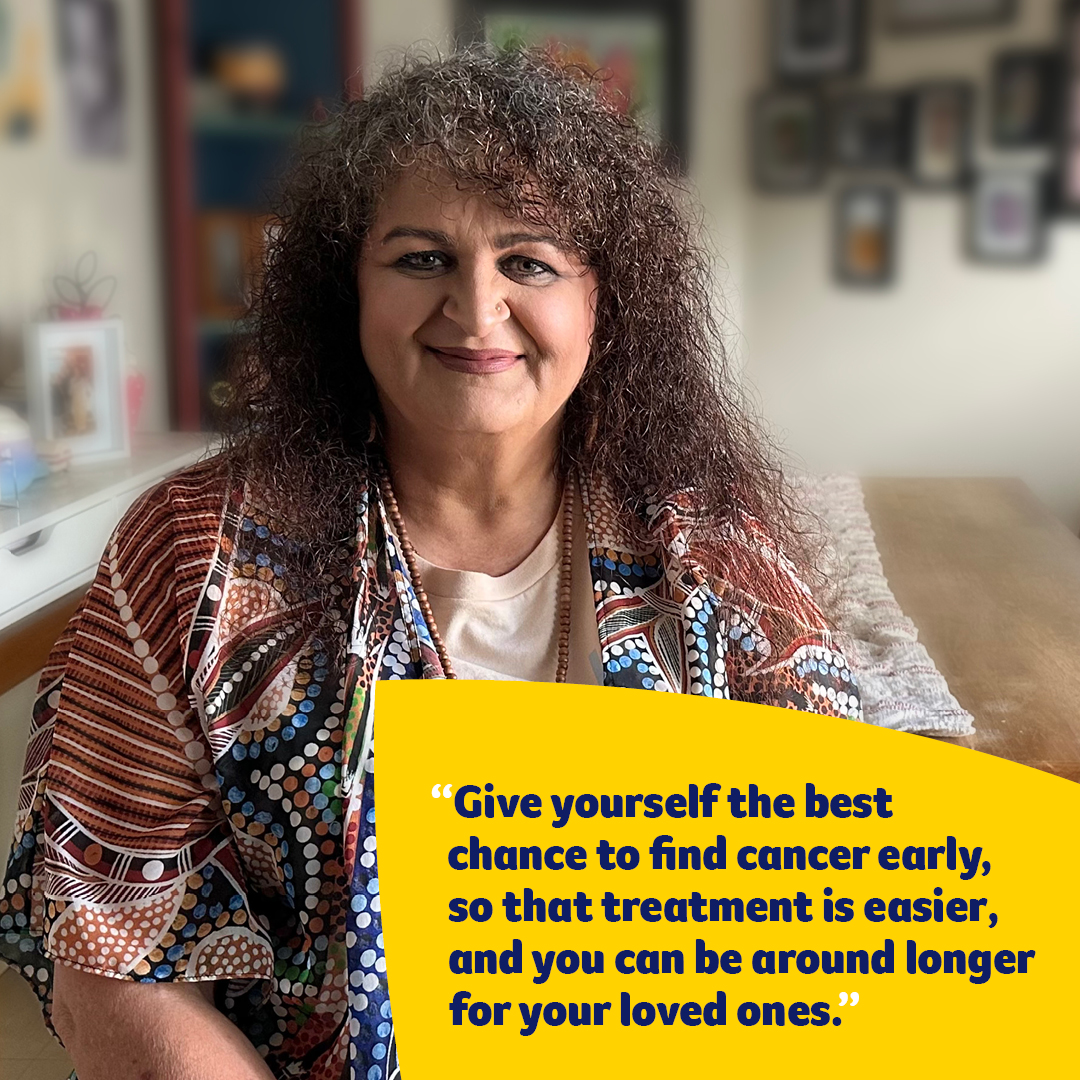Bowel cancer champion
Cherie’s Story
Cherie was busy working, looking forward to a new beginning as her children became adults, when she started to experience strange symptoms like constipation, diarrhoea, bleeding, and pain, which she ignored for too long. But as time went on, the pain became unbearable. It wasn’t until she was rushed to the emergency department in January 2022 that she found out the terrible truth that she had stage 4 bowel cancer that had spread to other parts of her body.
Cherie is currently undergoing chemotherapy, surgery, and radiotherapy.
Cherie is a proud member of her Aboriginal community in Western Australia. She has always believed in the importance of taking care of herself, her family, and her mob and is keen on raising awareness of the early symptoms of cancer in her community to encourage them to seek medical attention and not feel shame or embarrassed about their health concerns.
Cherie said the support of her children, family, and her mob, as well as social workers and the Aboriginal liaison team, is what is getting her through this journey.
Cherie’s advice
“Don’t ignore it. See your doctor or your local Aboriginal Medical Service. Don’t wait.”
Cherie’s story is a reminder that it’s important to listen to your body and seek medical help if something doesn’t feel right. It’s easy to put things off, but early diagnosis is vital in the fight against cancer. Don’t wait until it’s too late – take care of yourself and your loved ones by making sure you see a doctor if you notice any changes to your body.

Bowel cancer screening
Bowel cancer screening kits are designed for people who don’t have any noticeable symptoms of bowel cancer.
If you don’t have any bowel cancer symptoms and you’re eligible, it is recommended you participate in the free National Bowel Cancer Screening Program for people aged 50-74.
If you do have possible bowel cancer symptoms, it’s recommended you see your doctor, clinic nurse or health worker without delay.
Remember, the earlier cancer is found, the better your chances of survival. So, make sure you participate in free screening at every opportunity and see your doctor if you notice any unusual symptoms.

